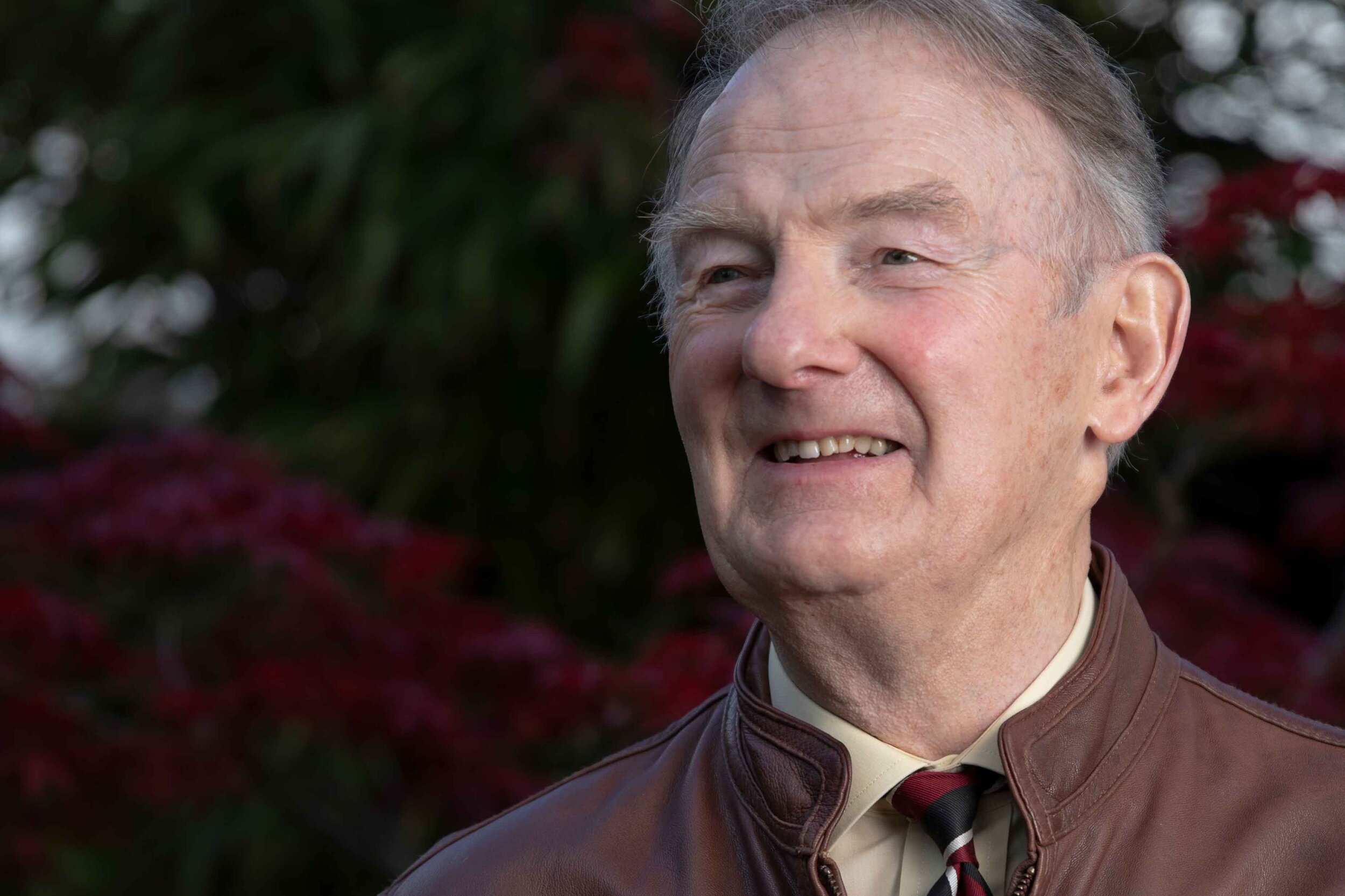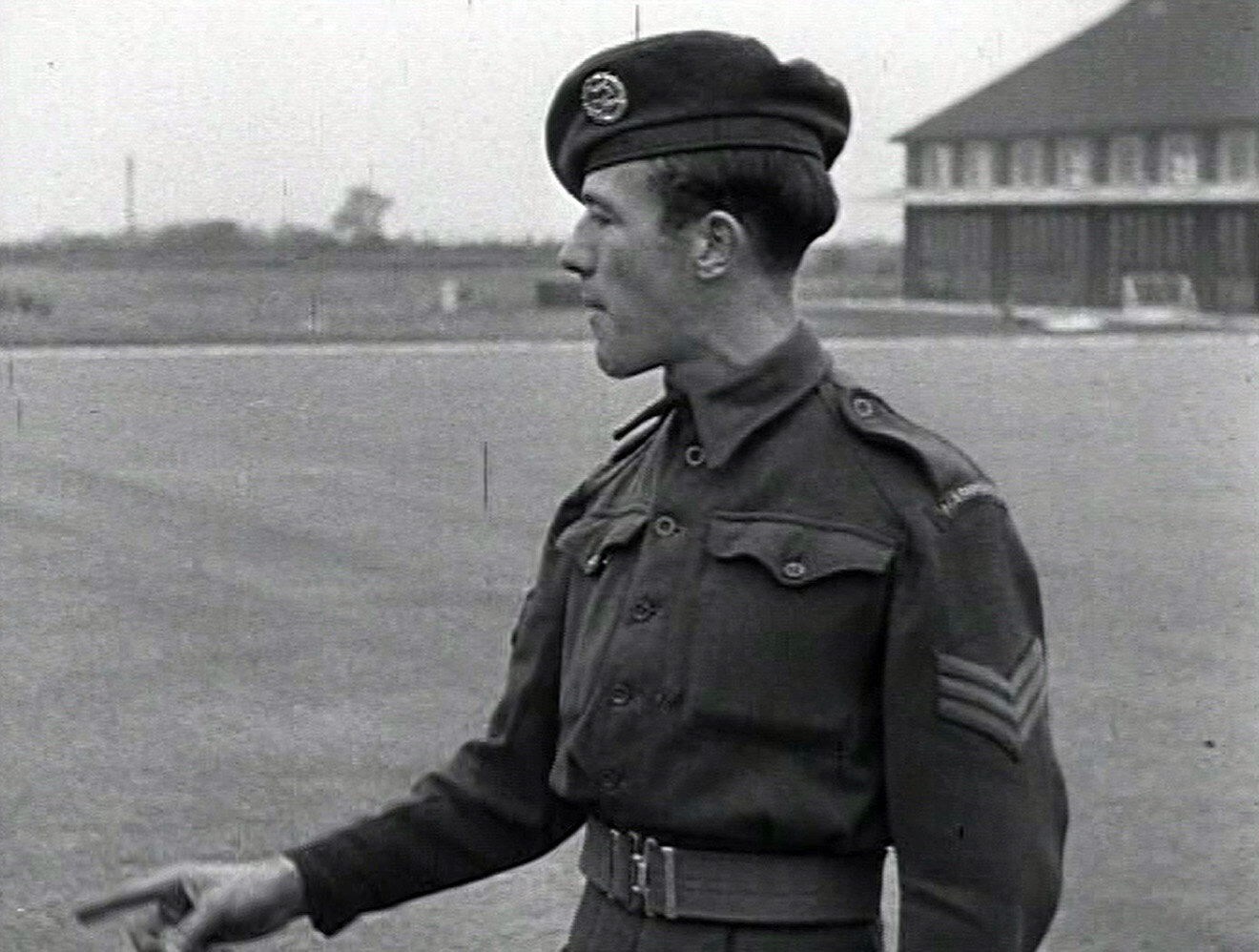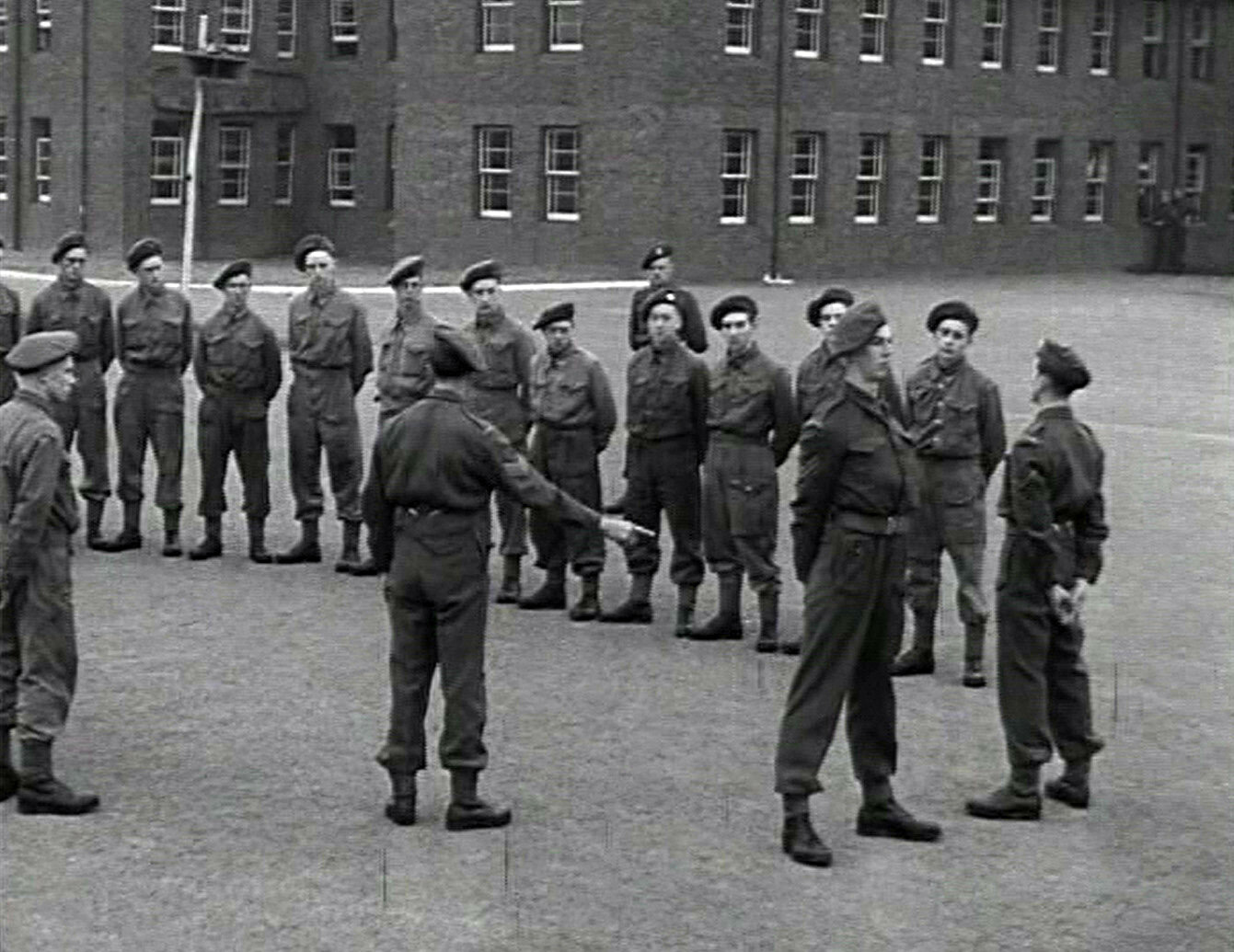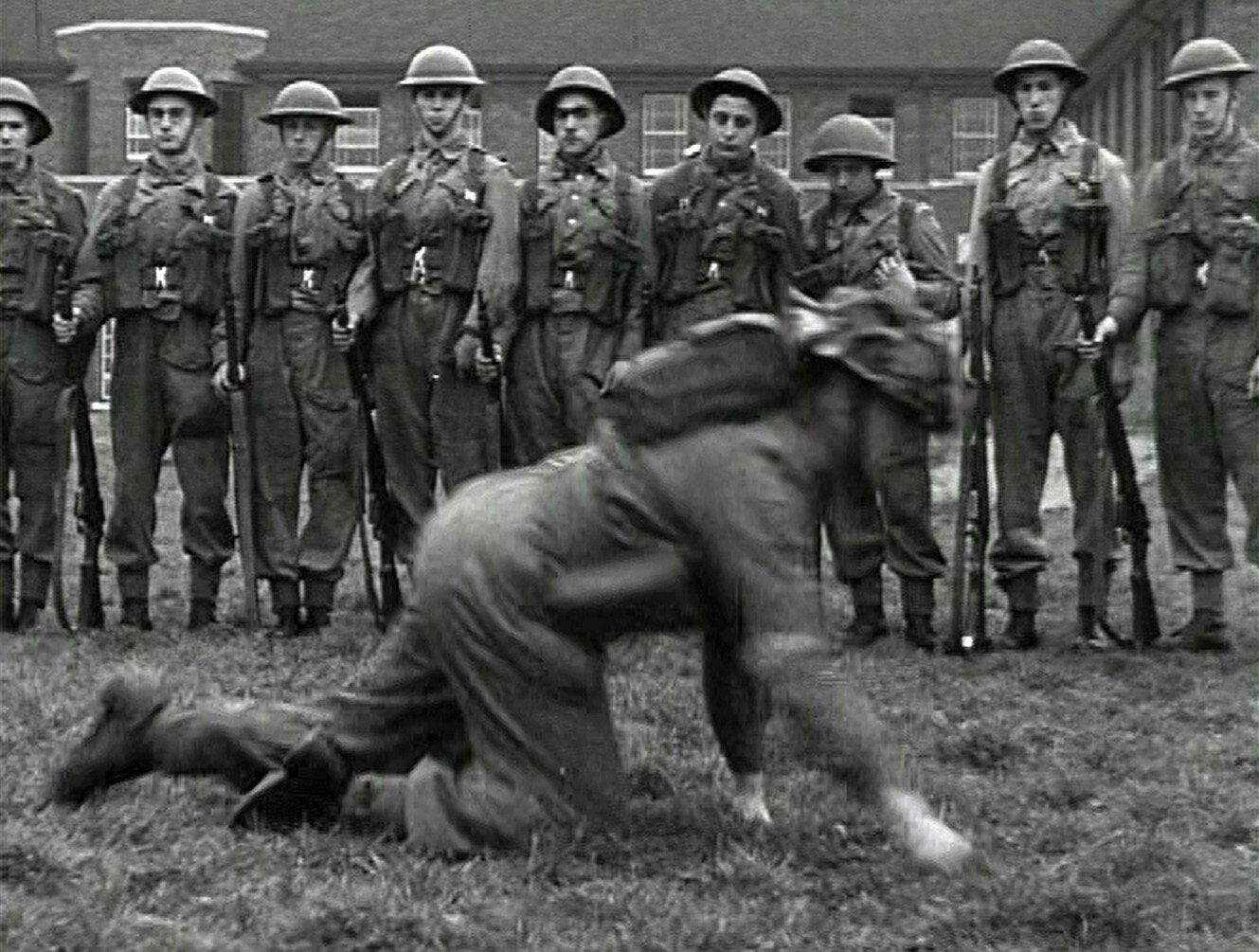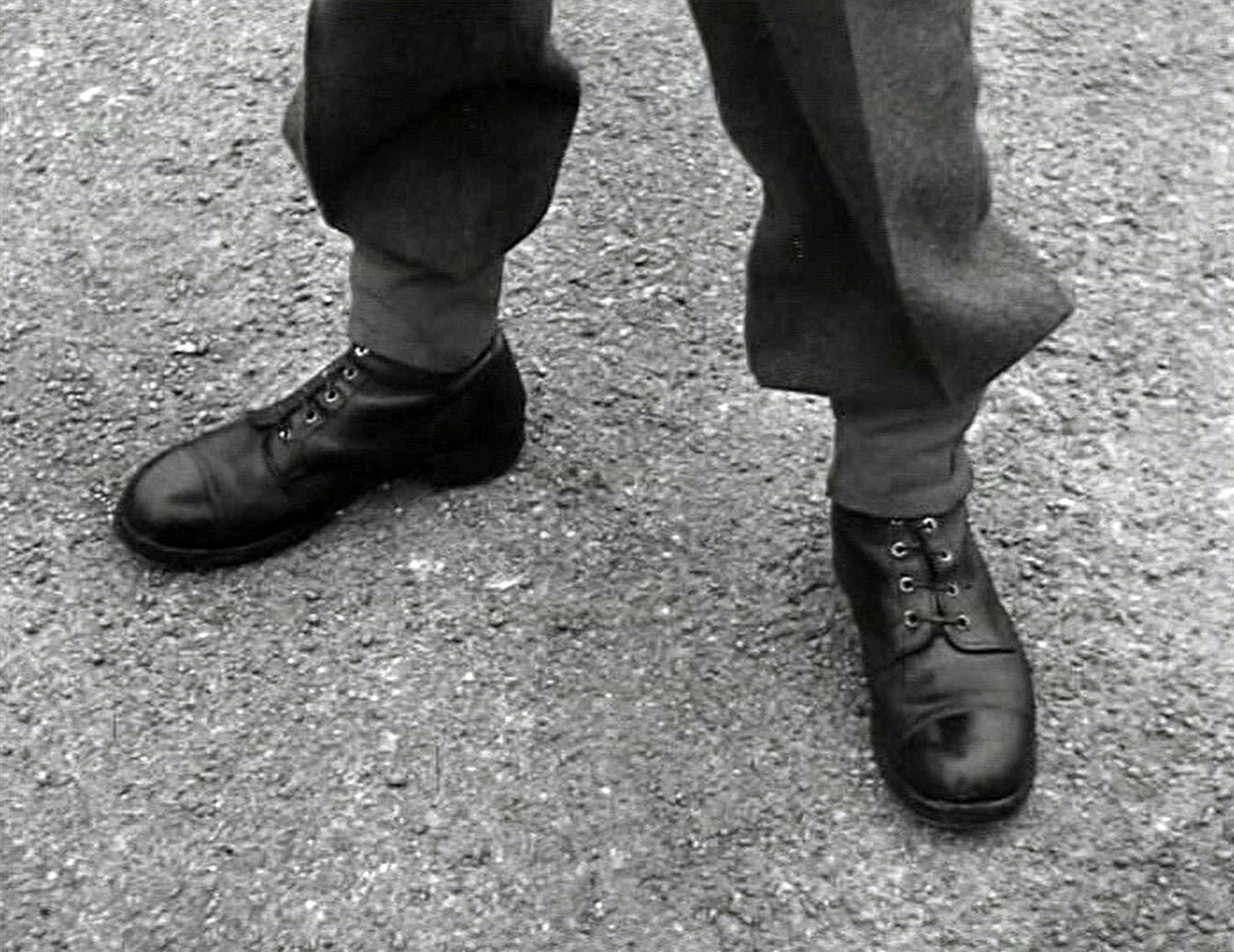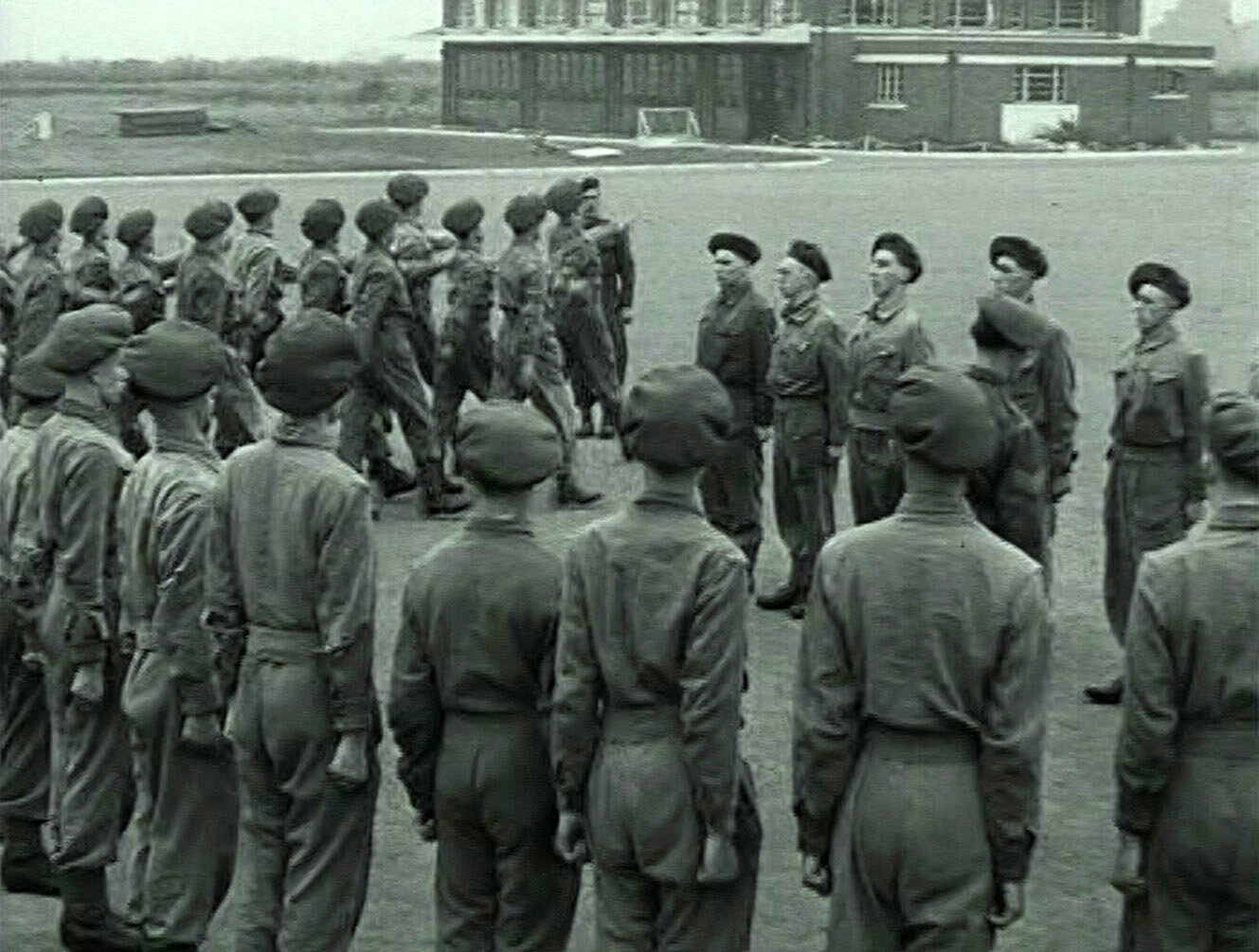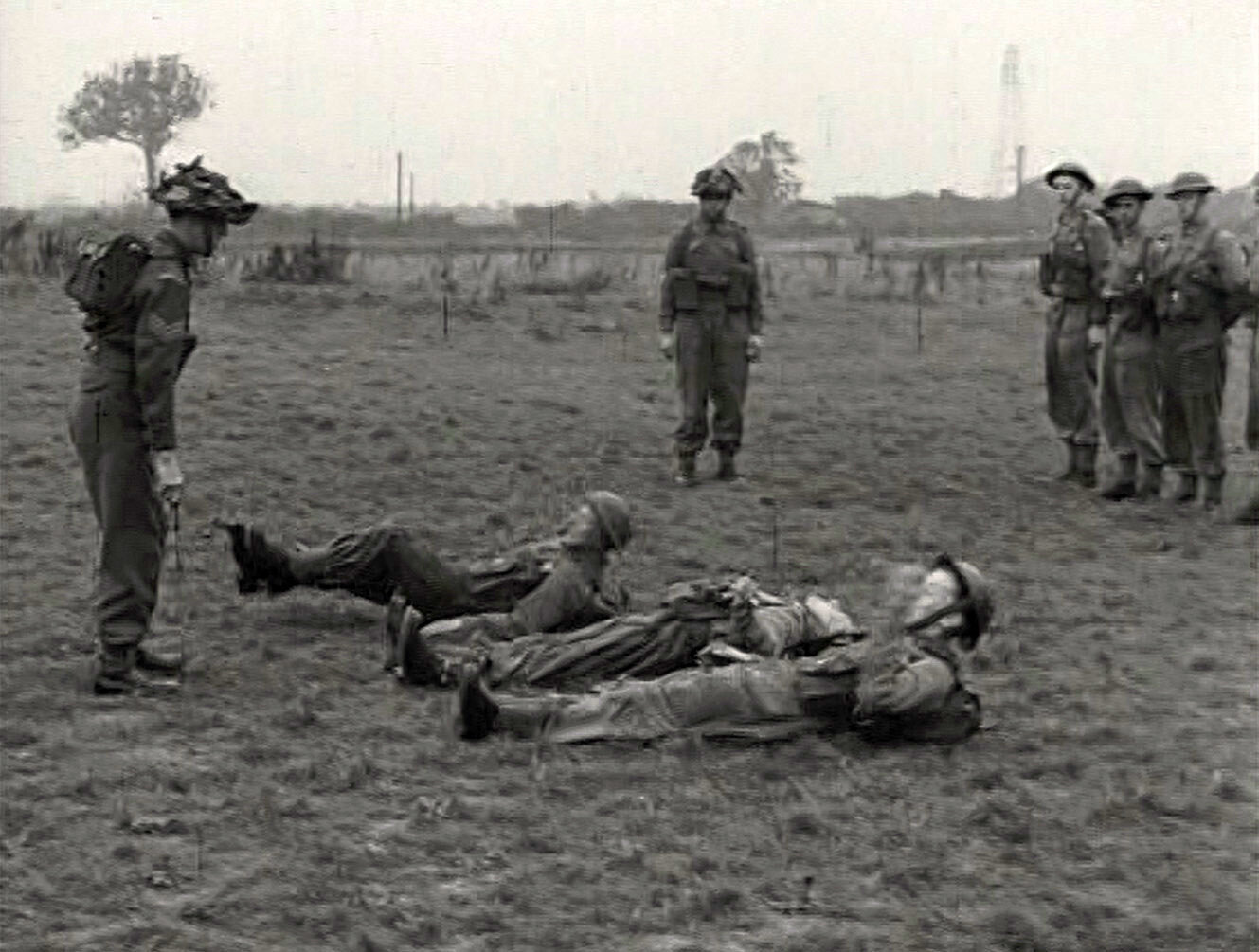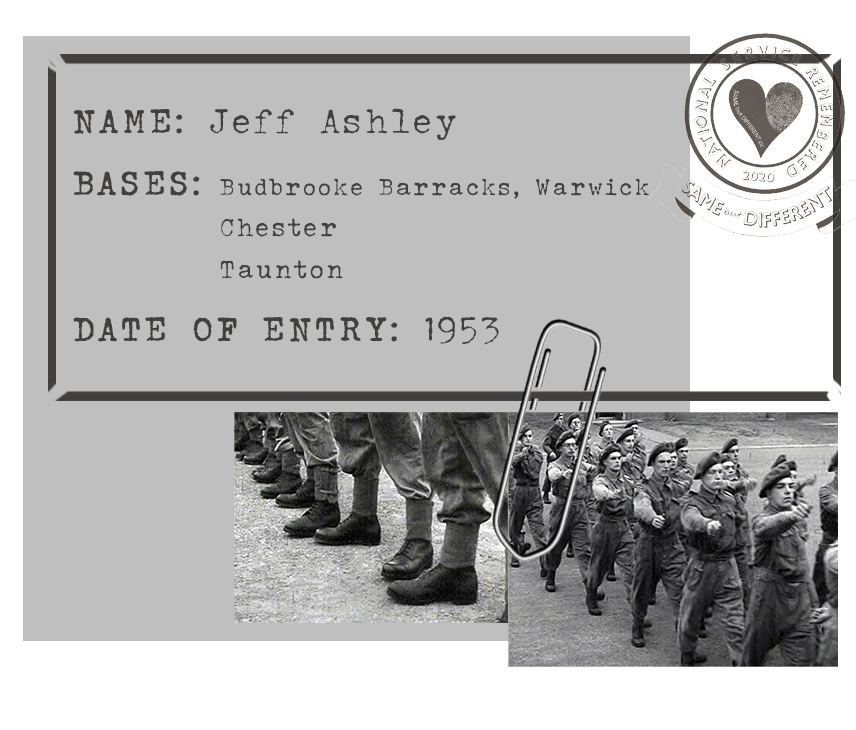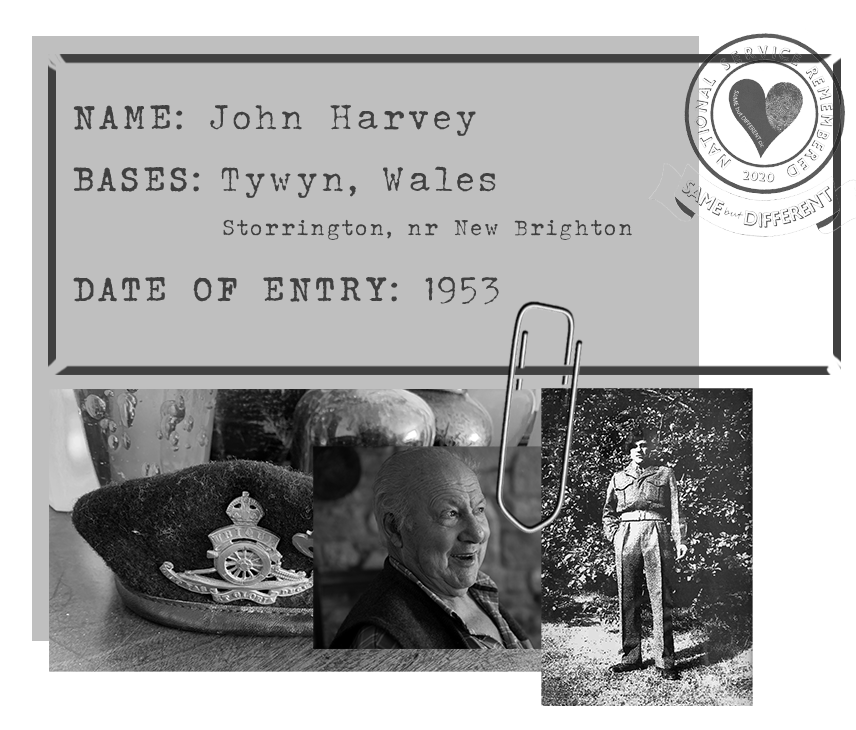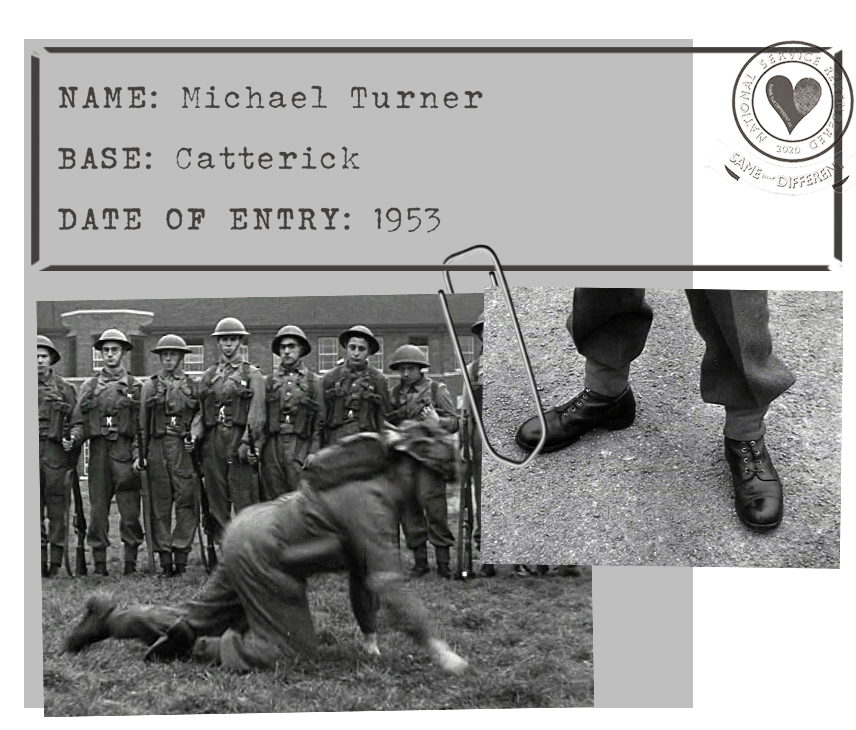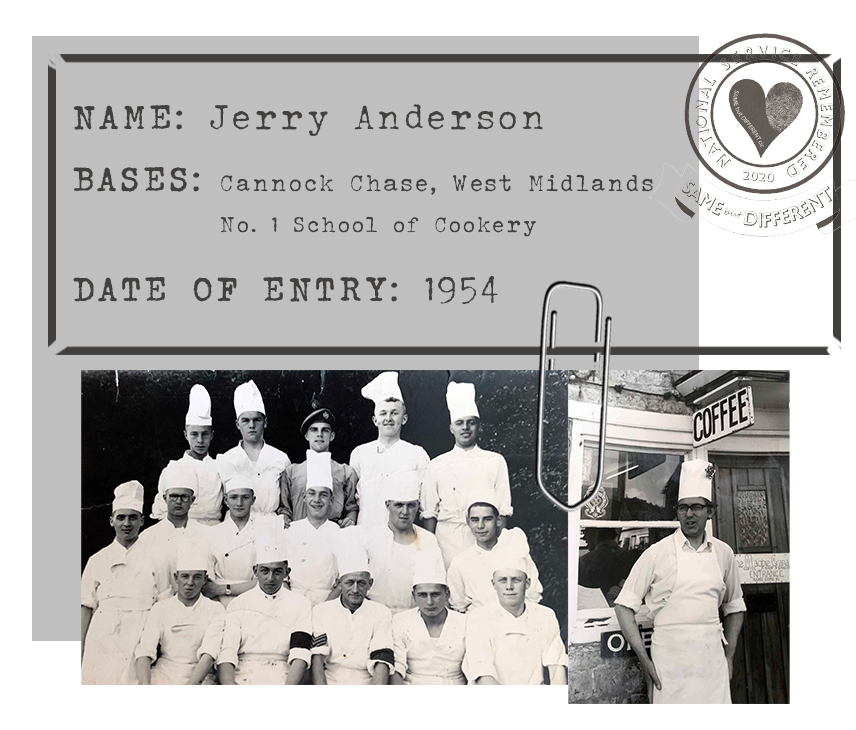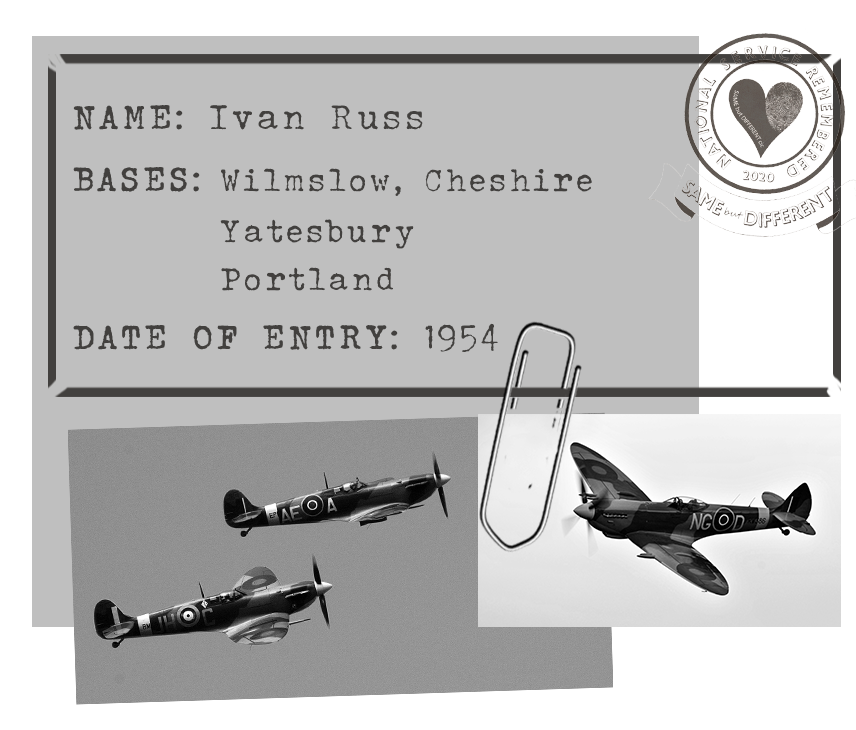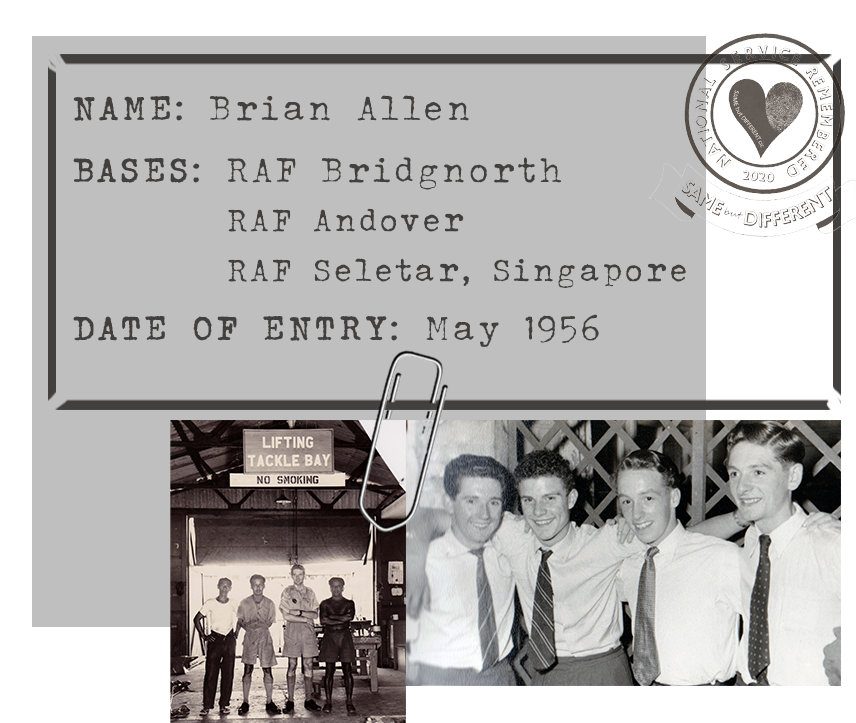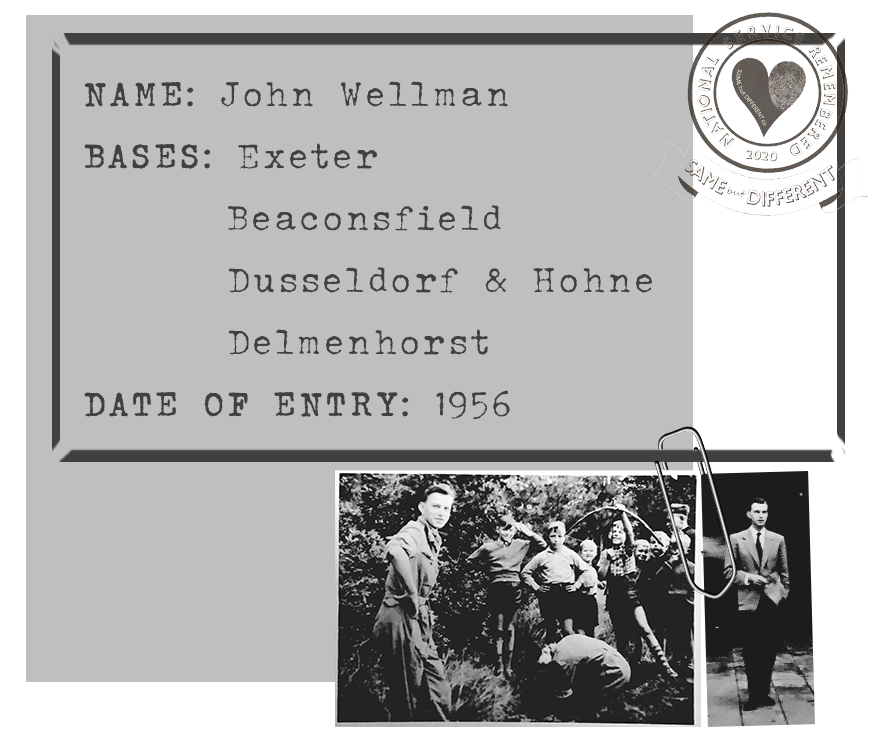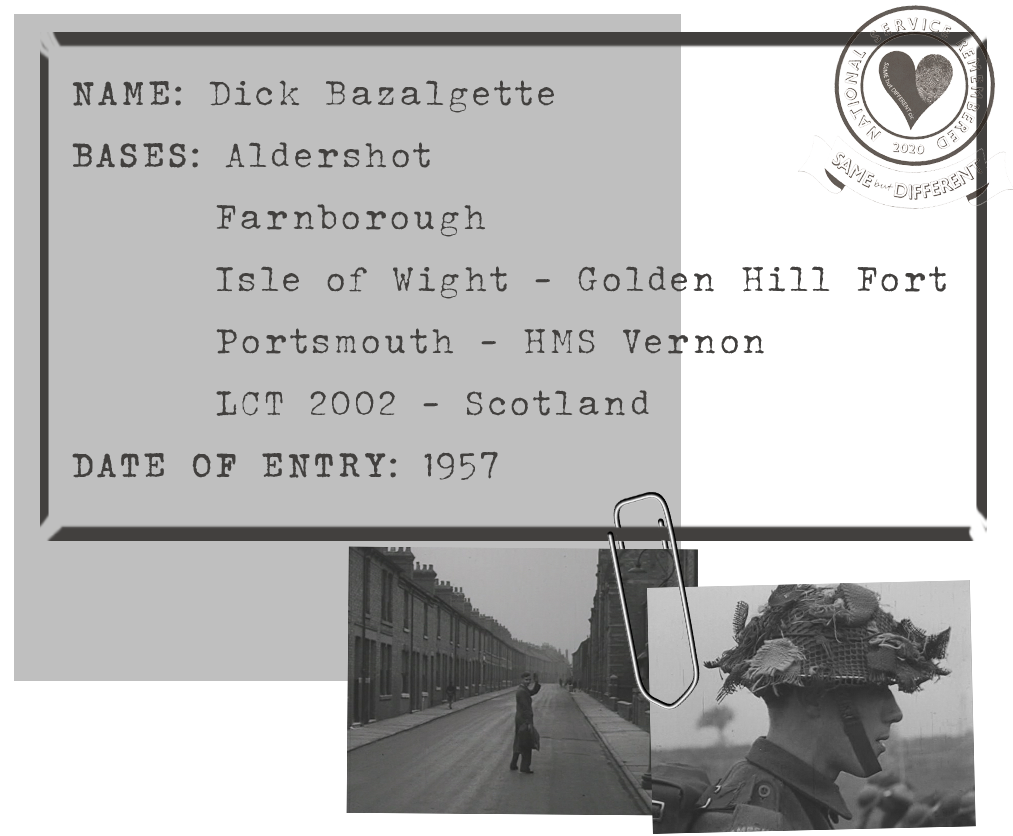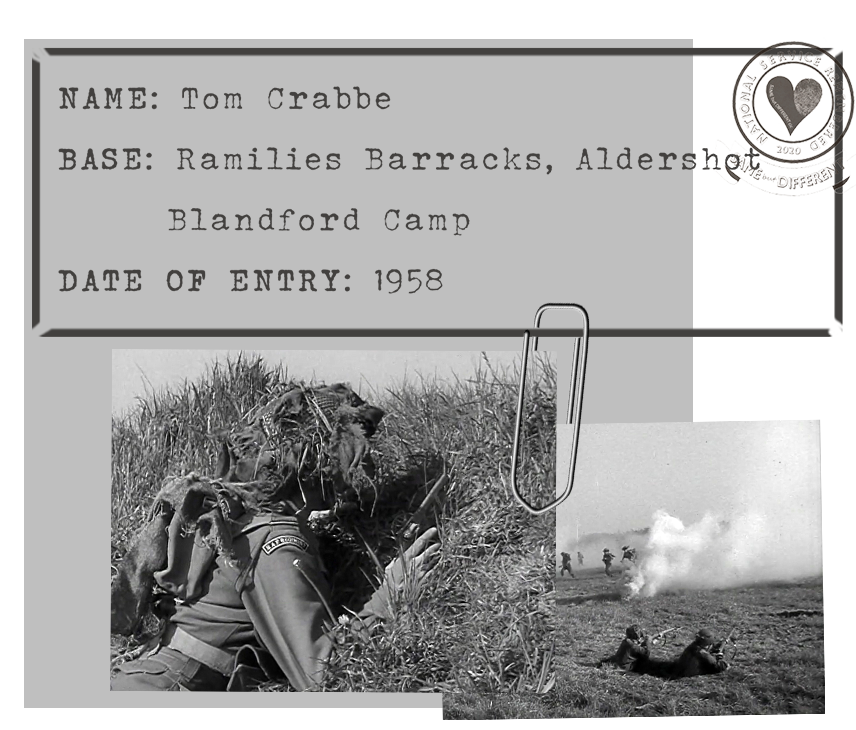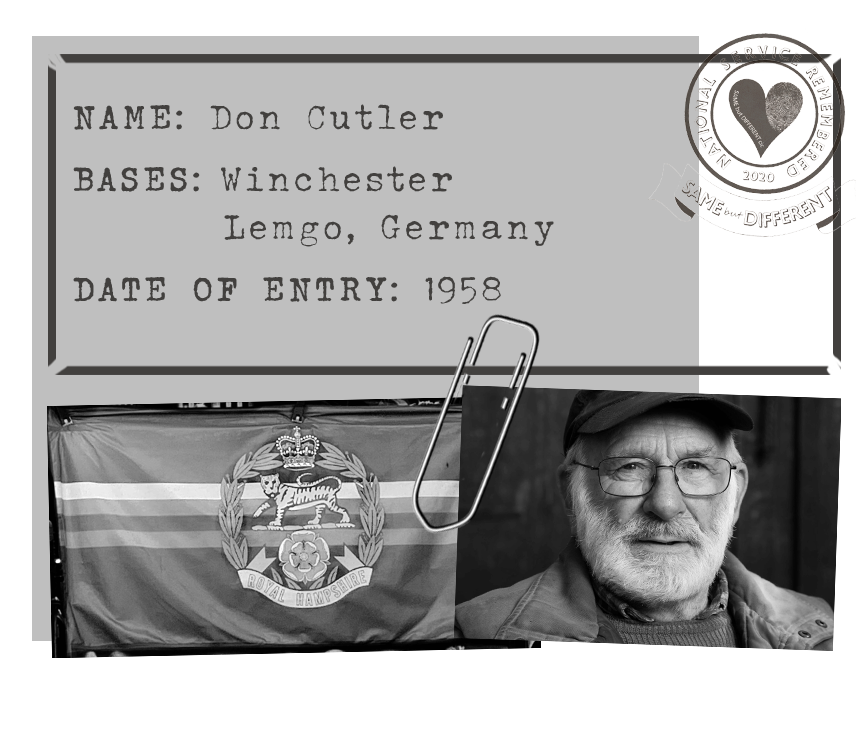I was born in 1933 and was 6 years of age when WWII broke out.
In 1941, aged 8, I joined a Scout Cub Pack. My life in the Scouts in Tottenham was, for a young boy, very exciting. The excitement was the ‘BLITZ’. I remember a ‘Pack Outing’ to London Zoo in Regents Park, when a V1 Buzz Bomb landed in the park. At the age of 12 years old, I recall selling programmes for the “Victory Parade”.
On leaving school at 16 years old, I started an Engineering Apprenticeship. This meant that I was deferred from National Service, which I would be required to do at the end of my Apprenticeship at the age of 21. I hated engineering and shortly after my 19th birthday decided that I ‘wanted out’. The moment you did this you were grabbed for National Service. This worked in my favour because I was nearly 19½ years old when I reported to the 65th Training Regiment, Royal Armoured Corps., Catterick Camp to start my National Service.
I was a relatively ‘old man’ compared to most of the intake. Prior to reporting to Catterick Camp, there was a ‘Selection Day’ in London, in order to decide which arm of the Armed Forces you were to serve in, either the Royal Navy, Royal Air Force or Army. This entailed taking a very basic written exam, prior to being interviewed by an Army Captain. At the interview I was informed that I was to join the RAF. I told the Captain that I had some friends in the RAF who had nothing to do with aircraft, and that I wanted to do my National Service in the Army. He tore up my exam paper and binned it, called in the Sergeant and told him that I was to take the exam again, having previously briefed me to return with a BLANK exam paper.
“I remember a ‘Pack Outing’ to London Zoo in Regents Park, when a V1 Buzz Bomb landed in the park. At the age of 12 years old, I recall selling programmes for the “Victory Parade”.”
So Catterick Camp it was. It turned out that the 65th Training Regiment supplied men for six Cavalry Regiments of the 8th Royal Hussars, 10th Royal Hussars, 14/20th Kings Hussars, 3rd Dragoon Guards, 4/7th Dragoon Guards and 16/5th Lancers. They were all Armoured (Tank) Regiments. Training consisted of 6 weeks Basic Training, followed by training for wireless operator, tank driver and Gunner, a tank crew being four men. The fourth man being the Tank Commander, normally an N.C.O. On completion of training, men were drafted to one of the above Regiments.
Prior to joining the Army, the football team I played for had a Cup Final to play. The team wanted me for the Final so they wrote to my Commanding Officer requesting that I join an Intake two weeks later than ordered. The request was granted. Following this, Scouting Headquarters wrote to my C.O. requesting that I be released to attend the Coronation of Queen Elizabeth II as I had been selected for Scouting Duty at Westminster Abbey. Again, the request was granted, and in the middle of my six weeks Basic Training, I was given a seventy-two hour pass, plus travel warrant.
Back to my first day at Catterick Camp.
A travel warrant was issued from Kings Cross to Richmond Station. Arriving at 4.00pm, the whole train was full of National Service recruits and met by a dozen or so very smart Corporals and Lance Corporals. Much shouting ensued as we were sorted into Regiments and herded into trucks. Catterick Garrison at that time was predominately Royal Signals having six Training Regiments. The Armoured Corps had only two Training Regiments. Arriving at Menin Lines, we were each allocated a bed in a barrack room of 30 beds. The barrack room was in a spider of six barrack rooms connected to one toilet and shower block in the centre.
We doubled everywhere (running in time), starting at the Q.M. stores, each of us was issued with three blankets, two pillows, one underblanket, two sheets, two pillow slips, kit bag, all webbing, two pairs of boots and everything else was ‘one size fits all’ or large, medium or small. On top of this pile of kit was perched one dinner plate, one soup bowl and one pint mug – all china! We were allowed to stagger back to the barrack room, much of the china not making it! The pieces had to be picked up and thrown into the kit bag, before you proceeded. Having deposited everything on your bed, you were doubled back to the Q.M. store to replace the broken china, the cost of which was stopped out of your first weeks pay (four shillings per day or twenty-eight shillings per week). This equates to £1.40 per week today.
The only kit we had not been issued with was two Battle Dress uniforms. This was done the following morning plus a haircut.The remainder of our first day was taken up with being fed, checking that we had all of our kit and shown what and how to wear denims (two piece) or if you were lucky, a Tank suit (one piece boiler suit) plus boots, belt, gaiters and a beret with a cap badge.
“Each of us was issued with three blankets, two pillows, one underblanket, two sheets, two pillow slips, kit bag, all webbing, two pairs of boots and everything else was ‘one size fits all’ or large, medium or small. ”
So began the 6 weeks of Basic Training that would turn us from ‘Civvies’ into ‘Troopers’ in the Royal Armoured Corps.
We were taught how to drill, polish brass, bull boots, blanco webbing, iron a shirt including Battle Dress trousers and jacket. Bed blankets had to be ‘boxed’ every morning. All webbing was laid out on the bed along with your boots, which were ‘stood to attention’, on the bed at the foot end. The locker door was left open to show all our kit displayed and folded. We were issued with one sheet of brown paper, one length of string and one label to parcel up your civvy clothes and was posted home. You retained your shoes to wear with battle dress when ‘walking out’. We learnt how to handle, drill and fire the Enfield .303 rifle, Colt .45 revolver and Sten submachine gun. During this initial 6 weeks we were interviewed again. I was asked if I would consider training for an officer. I declined. I had spoken to friends who had become a National Service Officer; to achieve this you really needed extra income to support you (for mess fees). Hence, I was to be trained as a possible N.C.O. and Tank Commander.
Every evening was spent polishing kit. All the brasses had to be smooth like polished gold. Best boots like black glass. Webbing had to be blancoed. The trouble was the brass buckles attached to the webbing got covered in blanco and had to be polished without marking the blancoed webbing – a nightmare! At 9.00pm, we were allowed to go to the NAAFI canteen for a whole hour to do what we liked.
Over the 6x weeks, our drill improved. As a squad we worked to make our barrack room the smartest, we became a team and we learnt to help each other. We discovered that if one of the squad let the side down – we all got punished. So you learn quickly to rally around and help the ‘weak link’ to become a team. It worked, our squad won the drill competition and 6 weeks to the day we proudly paraded for our Pass Out Parade, followed by 72 hours leave. Following leave, we were to return for Trade Training. As a potential Tank Commander, I was trained as a wireless operator. The problem was you had suddenly lost your mates.
You were thrown into a new barrack room, with blokes you didn’t know and had to start building your team all over again. Having completed 6 weeks basic training, you were liable for ‘Guard Duties’. Every night the Regiment mounted 3 guards. The guard at the main Guard Room, was made up of a Sergeant, a Corporal and 12 Troopers. This meant that 36 Troopers had to do Guard Duty every night. This equated to a Guard Duty every other week for me! But I only did ONE Guard Duty. I had discovered that there were 2 extra Troopers on each Guard. When first assembled, the guard was inspected by the Duty Corporal and the smartest was dismissed. The guard was then passed over to the Duty Sergeant and again the smartest was dismissed. So, by having the smartest turnout, I discovered a perfectly legitimate way of never doing a Guard Duty! I had a new mate and working together, he also only ever did one Guard Duty.
“Every evening was spent polishing kit. All the brasses had to be smooth like polished gold. Best boots like black glass. Webbing had to be blancoed. The trouble was the brass buckles attached to the webbing got covered in blanco and had to be polished without marking the blancoed webbing – a nightmare! ”
Whilst on the wireless course, I discovered that a Drill Course for potential Drill Instructors was to start shortly and volunteers were wanted.
It would seem that most of the Troopers couldn’t wait to play with noisy, smelly, greasy things called tanks. I, on the other hand, quite enjoyed drill and being clean and smart. My new mate and I both signed up. Again, another 6 weeks of Drill and being taught how to teach Drill to become a G.M.T. Instructor (General Military Training). The trouble was the Drill Course started 2 weeks before we finished our Wireless Course. We spoke with our Wireless Instructor and he suggested that if we put in the extra hours in the evenings, he would help us, and we could take the wireless exam 2 weeks early with the class ahead of us. This we both did and passed. Result! We were qualified wireless operators. Awarded with the trade pay which went with it and we were able to commence the Drill Course on time. As we would be doing ‘work experience’ working with qualified GMT Instructors and raw recruits, we needed some authority and we were promoted to acting Lance Corporals. The Drill Course was being run by a WO2 (Squadron Sergeant Major) who had just returned from 6 weeks with the Brigade of Guards in Pirbright, Surrey. There were 15 on our course, several already Corporals. All were volunteers.
It was a great 6 weeks which I enjoyed, and I experienced again what I had found on the Wireless Course. If the Army can teach you to do something, there was no better teacher. I should explain at this point, that all the Regiments in the Army at this time were around 40-50% National Service. Most Regular Soldiers did not want to be in a Training Regiment. No Regimental life. Everybody was coming and going – ‘Bloody Sausage Machine’, no Regimental family. The situation was simple. Any National Serviceman above average was encouraged to become a N.C.O. Instructor. Most of the Lance Corporals and Corporal Instructors were National Servicemen. Only the Sergeants and Warrant Officers were Regulars. Even the second Lieutenants, the most junior of commissioned officers, were National Service.
I successfully completed my 6 weeks G.M.T. Instructors Drill Course and was given a squad of raw recruits of my own.
The Sergeant of the Intake pretty much ‘left me to it’. It was hard work, but enjoyable. I worked my squad hard and slowly but surely, they became a team. It wasn’t much different from my days as a Scout Patrol Leader. Firstly, find out what you’ve got. How many were Public School, had Cadet experience, been in the Boys Brigade or Scouts? I lived with them every day from Reveille to Lights Out. Showing them what to do and how to do it. The Pass Out day arrived – we didn’t win anything, but my Sergeant told me “It wasn’t a bad effort for the first time – you’ll learn”!
At the completion of my G.M.T. Course, I was able to select which Regiment I should like to join. Our Squadron Leader and two Corporal G.M.T. Drill Instructors were from the 10th Hussars. Both excellent instructors, one had been an R.S.M. in the Army Cadets before National Service. Also 10th Hussars – why not join a ‘team’ that had winning ways. So I chose to wear the Prince of Wales Feathers and be a 10th Hussar. So I soldiered on getting better at my job. I was promoted to Full Corporal after 11 months and my squads became the ones to beat. 5 months later the Regiment changed its C.O.. Our new C.O. was a 3rd Dragoon Guard and had been on active service in South Korea having a high regard for the National Serviceman. I was summoned by the R.S.M. and told that I was to be promoted to Acting Sergeant in order to attend a course for WO’s and Sergeants. It was at the All Arms Drill Wing at the Brigade of Guards, Pirbright, Surrey. Another 6 weeks Drill Course! Providing I returned a result of C+ on my return, I would retain my rank and move into the Sergeants Mess. I completed the course and returned with a B+. The R.S.M. told me that in fact I was awarded an A-. But anyone getting an A result was retained by the Guards as an instructor. I was a National Serviceman and the Guards did not take National Servicemen. So my result became a B+.
“It would seem that most of the Troopers couldn’t wait to play with noisy, smelly, greasy things called tanks. I, on the other hand, quite enjoyed drill and being clean and smart. My new mate and I both signed up.”
Life in the Sergeants Mess was very different – I kept a low profile as the ‘new boy’ and was guided by the R.S.M.
I recall one Saturday evening in the Mess with records and dancing. The R.S.M. took me to one side and whispered in my ear “Mrs Hancock likes to dance – Sergeant Hancock doesn’t, you do, go and ask her for a dance”. I did as I was told! There was a “Sergeants Mess Night” when the Sergeants Mess entertained the C.O. and His Lady to dinner. As the junior Sergeant, I was given the job of proposing a toast to “The Colonel and His Lady”. I arrived at the Mess early, smartly dressed in my Best Battle Dress, in order to take any final instructions from the R.S.M.. I was greeted by “Why the hell are you not wearing Blues”. I told the R.S.M. as a National Serviceman, I was not issued Blues. So the only man in the Mess dressed in Battle Dress rose and proposed a toast to his C.O.! The following morning, I drew Blues from the Q.M. stores.
In the Mess you had to purchase your own beer mug, that was duly engraved with your Rank, Name and Regiment. The Beer Mug Rack stood just inside the Bar. Starting top left with the R.S.M. followed by the WO2’s and so on down in order of seniority. When my mug arrived, I put it far right bottom row! The R.S.M. asked “Has your mug arrive laddie?”, “Yes Sir” I replied pointing to where it hung. He took my mug and moved it well up the ‘pecking order’. “You’re a Cavalry man, you’re senior to all these Corps Sergeants”. So I became the only National Service Sergeant in the Regiment, with the R.S.M. doing his upmost to persuade me to sign on as a Regular. I was un-persuaded and I travelled home to Tottenham in May 1955 as Mr.
I went on to have a very successful career as a Toastmaster, retiring at the age of 82.


